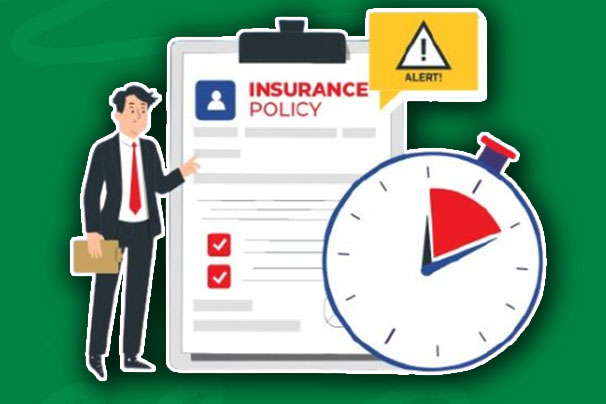A lot of people often ask, “Why do people lapse on life insurance payments?” If you are among those who seek answers to this question, then you are in the right space to get all the information you need. Life insurance is essentially designed to give loved ones financial stability in the event of an unexpected death; however, many policyholders end up lapsing premium payments, which can ultimately result in loss of coverage.

Several factors contribute to missed payments, such as changes in financial situations, lack of knowledge about policy terms, and sometimes, complexities of life insurance policies. If you have a life insurance policy, it is important to have an idea of the reasons behind lapses in coverage, since it highlights difficulties people face in handling financial obligations.
Here in this comprehensive write-up, we would shed more light on several reasons why people lapse on life insurance payments. Also, how to avoid coverage lapse and other useful information.
What Is a Life Insurance Lapse?
A life insurance lapse simply refers to a situation whereby a policyholder is unable to meet up with premiums during the contractual grace period of the policy. Essentially, if a life insurance lapse occurs, the coverage ceases to be active.
This means that you will not be covered if anything were to happen to you. Insurance companies cancel life insurance policies due to non-payment of premiums. If you are unable to still meet up with the grace period provided by your insurance company, your policy will most likely end up lapsing.
Why Do People Lapse on Life Insurance Payments?
Frankly speaking, many policyholders lapse on life insurance payments due to tough financial situations. The inability to meet up with premium payments is mostly due to a major financial change. Highlighted below are some of the common reasons why people miss their insurance payments:
Loss of Income
This is by far one of the major reasons why a policyholder may not be able to meet up with his or her life insurance payment, thereby causing a lapse in coverage.
In a situation where a policyholder’s employment is terminated or their work hour is reduced. They may not have the financial capability to keep up with paying their life insurance premiums. Once a person loses his job, the source of income is no longer there, ultimately affecting premium payments.
Increment in daily expenses
Another thing that also makes people lapse on life insurance payments is an unexpected increase in daily expenses. Life itself is unpredictable, and the same thing applies to expenses; they can come up at any time and in different ways.
If your car gets damaged unexpectedly, you may be required to cover the expenses out of pocket. Let’s also say your washing machine stops working; that’s another expense on its own. In a case where you don’t have enough money to foot these expenses, you might want to use the money set aside for your life insurance payment to cover it.
Health Issues
If you were diagnosed with a severe health issue and you were unable to perform work-related activities for a long period. There’s a possibility that you would lapse on your life insurance payments, particularly for those who do not have other sources of income. Notwithstanding, several insurance companies offer waivers of premium ridership for those who are diagnosed with a health issue. You can confirm from your insurance company if this rider is available.
Being OverInsured
It may sound a little bit strange, but being overinsured may lead to an inability to meet up with life insurance payments. When a policyholder buys too much insurance and keeps unnecessary coverage, it can result in a lapse in coverage. Most insurance companies set premiums based on the type of coverage you have.
Typically, the higher the coverage on your life insurance policy, the higher the amount you’ll pay for premiums. It is important to review your coverage needs carefully; don’t just jam-pack your policy with coverage options you don’t need. If you realize you are overinsured, you can speak to your insurer on how to cut coverage.
How Can I Revive a Lapsed Life Insurance Policy?
If your life insurance lapsed for one reason or another, there are ways to go about it. First, you need to reach out to your insurance provider and seek an opinion on how to revive your policy. Your insurer will then let you know what the process will be like, but before you proceed, ensure you read the documents thoroughly. Some insurance companies may require you to submit a written request in the process of reviving your lapsed policy.
Furthermore, to revive a lapsed policy, you have to pay premiums that you owed previously, including the current one. Once you have made payments, ensure you always pay premiums on time to avoid coverage lapse.
Tips on How to Avoid Missing Your Life Insurance Payments
Since the primary reason for a lapsed policy is the inability to meet up with premium payments, there are several ways policyholders can mitigate the risk of coverage lapse, such as,
- Paying premiums on time
- Signing up for autopay.
- Buying a premium waiver if the insurer sells it
- Review your policy and coverage needs regularly.
- Cut back on coverage, if needed.
- Put aside an emergency fund that can come in handy when you need it.
- Stay up-to-date about changes in your policy.
To sum it up, it is entirely possible to avoid coverage lapse by utilizing the aforementioned tips. There are insurance companies that offer flexible terms that meet the financial situations of different individuals. You can research and compare policies from different insurers to find coverage that best suits your financial goals and obligations.



